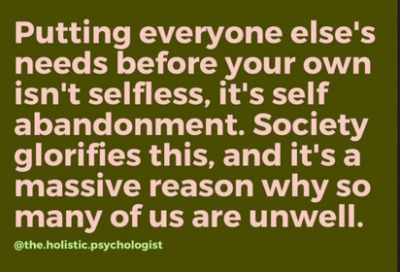When women, girls, and children talk about boundaries, it’s not hate speaking. It’s concern. It’s exhaustion. It’s survival language. Too often, th
When women, girls, and children talk about boundaries, it’s not hate speaking. It’s concern. It’s exhaustion. It’s survival language.
Too often, those who have been harmed or frightened are accused of being judgmental or “anti-something” when they speak about safety. But boundaries are not rejection. Boundaries are protection. They are what love looks like after a world has proven unsafe.
Just a reminder…….
🚨 Examples of Everyday Violations That Often Go Unspoken
- Teachers and educators facing students making lewd comments, touching themselves during class, or sending inappropriate messages.
- Healthcare workers experiencing groping or sexual comments while providing care.
- Flight attendants being cornered or touched by passengers mid-flight, with little recourse.
- Retail or service workers enduring “jokes” or unwanted touching from customers who think politeness is consent.
- Public transportation users being followed, rubbed against, or filmed without permission.
- Gym-goers (both men and women) having others record them during workouts or make unwanted advances in locker rooms.
- Office workers being subjected to explicit remarks during meetings or “team bonding” events.
- Artists, models, and performers encountering people who blur the line between admiration and entitlement.
- Men and boys who experience harassment but remain silent because they fear disbelief or ridicule.
Bringing these things into the light isn’t about hate or fear. It’s about safety, respect, and truth. Conversations around boundaries should never be mistaken for bigotry or judgment. They’re born from exhaustion, from years of being touched, spoken to, or stared at in ways that make people feel unsafe while being told to “take it as a compliment” or “don’t make a scene.”
These are all moments where boundaries are breached — not because people don’t know better, but because they believe they’re entitled to someone else’s body, attention, or comfort.
🌿 The Reality Few Want to Hear
Everyday, in ordinary places, people quietly endure acts that shouldn’t happen anywhere.
Hairdressers who have to stay calm while someone behaves indecently under the cape.
Teachers who are whispered to crudely in classrooms.
Nurses and aides who get grabbed or propositioned while caring for patients.
Retail workers who smile through harassment and harm because “the customer is always right.”
Bus riders who flinch when someone stands too close, touches too long, or follows too far.
Even men — yes, men — who are mocked or dismissed when they speak about their own violations.
These are not rare stories. They are daily ones. They are the background noise of a world that has gotten too comfortable crossing lines.
✴️ Boundaries Aren’t Hate: They’re Humanity
Some people still mistake a boundary for hostility.
But boundaries aren’t about hate — they’re about humanity.
When women, girls, or children say they want protection, privacy, or peace, that’s not cruelty. That’s exhaustion. That’s lived experience speaking. That’s generations of “don’t make a scene” and “take it as a compliment” rising up to say, enough.
We are not fragile. We are aware. Now.
And awareness changes what we’re willing to tolerate.
🚪 The Everyday Reality
A hairdresser shouldn’t have to wonder if the man under the cape is exposing himself.
A nurse shouldn’t have to pretend not to hear lewd comments while checking a pulse.
A cashier shouldn’t have to smile through hands that linger too long on change.
A woman on the bus shouldn’t have to calculate exits, just in case.
A teacher shouldn’t have to keep her phone on record to prove what happened. Or a student.
These are not isolated stories.
They’re symptoms of entitlement — the belief that some people’s comfort matters more than others’ safety.
🌾 When We Speak Up
When survivors speak about boundaries, it’s not coming from hatred or division.
It’s coming from concern.
From care.
From the instinct to protect others before they experience the same pain.
The selfishness lies not in the ones who set limits,
but in the ones who ignore them —
the ones who believe everyone else should absorb their behavior in silence.
🔥 The Call to Listen
Boundaries are love with structure.
They are peace in action.
They are how we keep the world from collapsing under unchecked harm.
So when women talk about needing space, privacy, or female-only areas, listen. She knows.
When survivors talk about consent, safety, and protection, listen. They know.
Because these conversations are not about exclusion — they’re about survival.
Boundaries aren’t hate.
They’re humanity remembering itself.